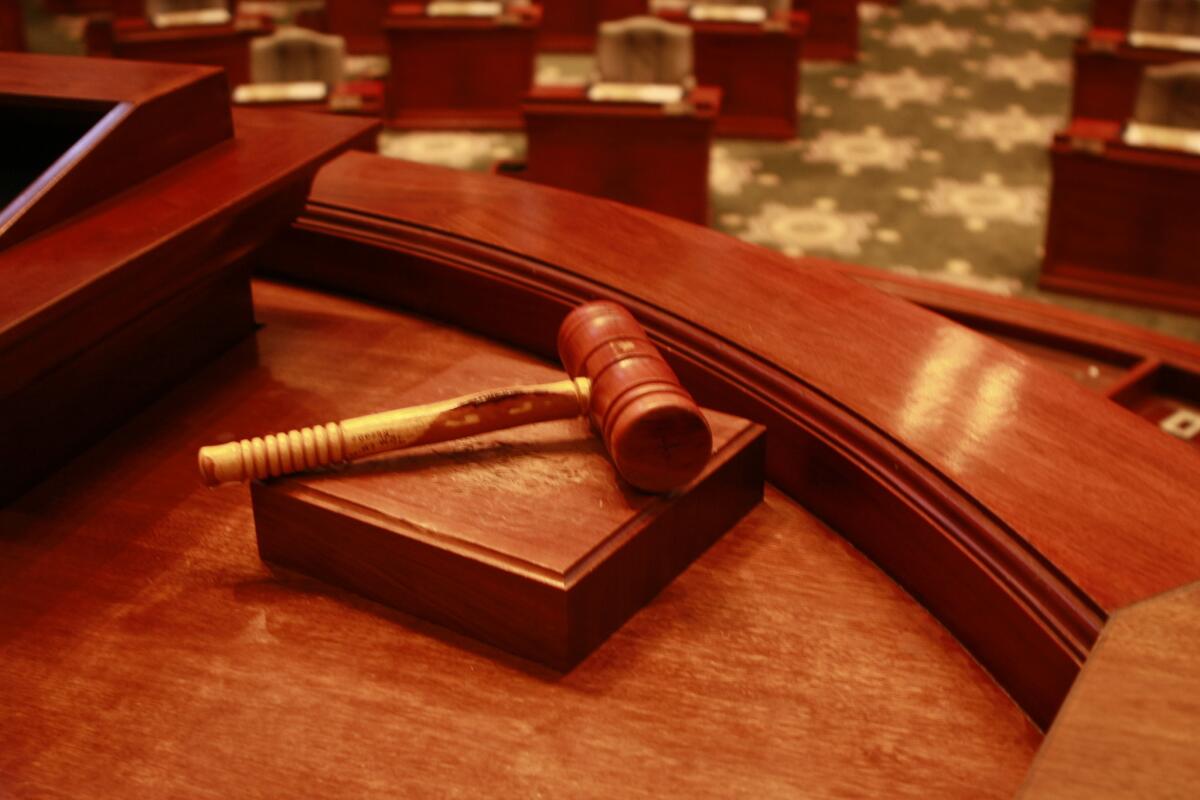Endorsement: The Times’ Superior Court judicial endorsements

Voters in Los Angeles County will see seven judicial races on their June 7 ballots. In three of them, lawyers have challenged judges who are seeking to be re-elected to new six-year terms. But the challengers fail to measure up to the people they want to replace, and the Times on Wednesday recommended that the three judges — James Kaddo, Kathryn Solorzano and Ray Santana — be re-elected.
Read the rest of our judicial ensorsements here>>>
In the other four races, candidates are vying for seats that are being vacated because the incumbents are retiring or otherwise leaving the Superior Court. As is so often the case, many of those candidates come from the Los Angeles District Attorney’s Office, contributing to a bench with a disproportionate number of criminal prosecutors. Sometimes prosecutors make good judges, sometimes not. In three of this year’s four open-seat races for judge, we fond the best choices to be prosecutors. And in the fourth, the best candidate is a former prosecutor.
Our recommendations:
Office 11: Steven Schreiner.
Three Los Angeles County prosecutors and a private practitioner are vying for this seat. Jonathan Alexan Malek, the lawyer in private practice, has a dearth of courtroom experience — and with 11 years as a licensed attorney, he has just a year above the minimum qualifications to serve — and is well out of his depth. Deputy District Attorney Debra Archuleta brings a combative style that may serve her as a prosecutor but would not translate well to the bench. Deputy District Attorney Paul Kim may someday make a good judge.
Of the four candidates, Steven Schreiner — also a deputy district attorney — has the most experience. He also is the one with the calm demeanor that a judge must have, and that is somewhat ironic, given that the knock on him when he ran two years ago was that he supposedly lost his temper when making his argument to a jury that couldn’t reach a verdict. Given his record in his many other trials, it seems more likely that he didn’t lose his temper at all, but was just going for effect. It wasn’t a great tactic, but it was a departure for a candidate who would likely make a model judge.
Office 42: Cyndy Zuzga.
Zuzga is a Superior Court commissioner, meaning she already is doing much of a judge’s work. And by all accounts, she is doing it well. What stands out about her, however, is her voluntary involvement in programs like the Downey Teen Court, a restorative justice effort in which young offenders are judged by their peers and are compelled to face the consequences of their actions and make amends. Zuzga is also a former prosecutor, so she is no stranger to problem of more serious crime.
Michael Ribons is an experienced and capable civil litigator and would also likely make a good judge. Other candidates include Deputy District Attorney E. Matthew Aceves, and private practitioner Alicia Molina, neither of whom have the breadth of experience that Zuzga has.
Office 84: Susan Jung Townsend.
Townsend is one of three deputy district attorneys running for this seat (along with a private attorney), and despite 17 years on the job she is not the one with the most experience. But she is the one whom many defense lawyers told the Times possesses the most integrity and the best judgment.
Also running are Deputy District Attorneys Hubert S. Yun and Javier Perez, and private practitioner Aaron Weissman.
Few deputy district attorneys ever use the words “Deputy District Attorney” for their official ballot designations — the descriptions that appear under each candidate’s name — because experience has shown that voters respond better to made-up titles like “Gang Homicide Prosecutor.” That’s the term Yun is using, and it is indeed an accurate description of his current assignment in the District Attorney’s Office. In this race, though, it is Townsend — listed on the ballot as a “Criminal Fraud Prosecutor” — who is the better choice, even if homicide is a more worrisome crime than fraud.
Office 158: David A. Berger.
One of the best services to voters puzzling over how to vote for judge is the set of candidate ratings produced by the Los Angeles County Bar Assn., the region’s largest voluntary organization of attorneys. The County Bar’s Judicial Elections Evaluations Committee engages in a review of the candidates and places each of them in one of four categories, from Exceptionally Well Qualified to Not Qualified. The Times often agrees with the committee’s assessments.
But not always. This year’s ratings have not yet been published but the Metropolitan News-Enterprise has reported that Berger was rated Not Qualifed. The Times nevertheless finds him to be the best of the candidates in this particular race.
As a deputy district attorney, and as a candidate for Los Angeles city attorney, Berger was never shy about expressing his opinion, including about his rivals.
He has a long and successful record as a prosecutor, and his free expression of opinion in that capacity do not make him less fit to serve impartially as a judge.
Deputy Attorney General Kim L. Nguyen is keenly intelligent and capable and would also make a good judge, but could benefit from another few years of experience before taking the bench.
Also running are Deputy District Attorney Fred Mesropi, Los Angeles Deputy City Attorney Onica Valle Cole, and Van Nuys sole practitioner Naser “Nas” Khoury. Among the five, Berger is the best choice.
Read the rest of The Times’ judicial endorsements here.
Follow the Opinion section on Twitter @latimesopinion and Facebook
More to Read
A cure for the common opinion
Get thought-provoking perspectives with our weekly newsletter.
You may occasionally receive promotional content from the Los Angeles Times.










